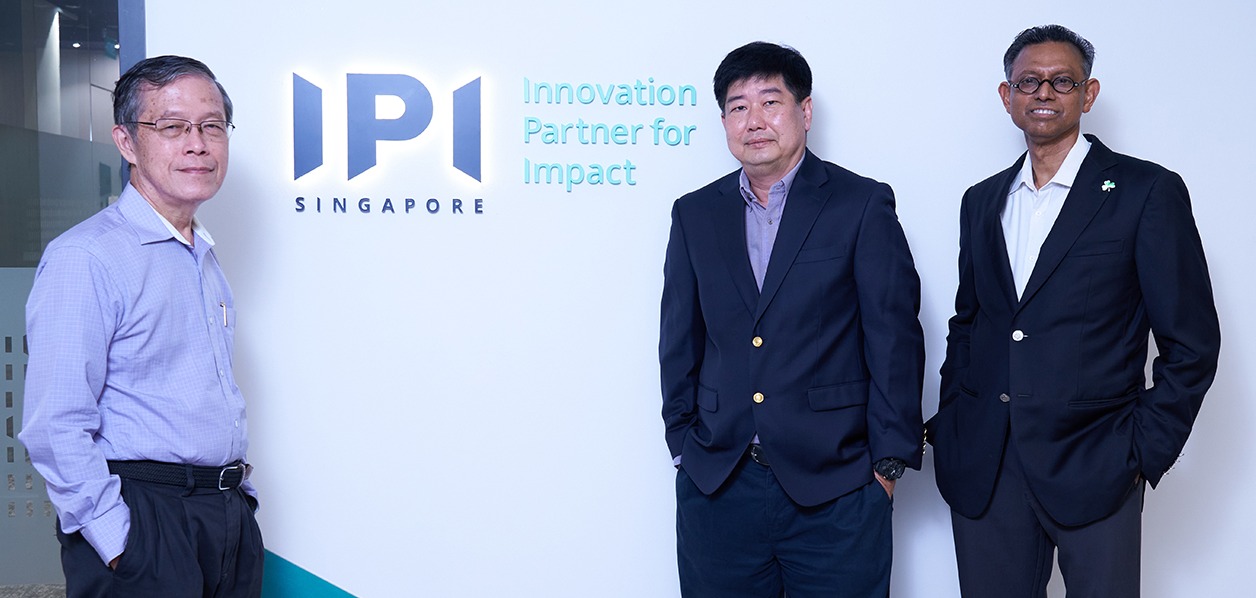Getting the right guidance to grow a business
IPI Innovation Advisors John Teo, Yap Chew Loong and Prof Ignatius Rasiah offer valuable insights into trends, business practices and investment in the medtech industry.
From health wearables and robotic surgical tools to precision medicine enabled by artificial intelligence (AI), medical technology or medtech has come a long way in recent years. Now, in the wake of a pandemic and a global ageing population, the industry is booming. For developed countries like Singapore, investments in the sector are paying off; the city-state is home to 60 multinational medtech firms and over 250 homegrown companies today.
Drawing on their extensive experience in the sector, IPI Innovation Advisors John Teo, Yap Chew Loong and Prof Ignatius Rasiah support Singapore’s expanding medtech sector by offering valuable guidance for growing companies to navigate this complex landscape.
Prioritising the med in medtech
Frontier technologies such as robotics and AI may be on the rise, but medtech innovations should always be driven by medical needs instead of the hottest digital developments, the Advisors concurred. “A lot of entrepreneurs think the technology is the most important. But I always tell them to talk to the doctors and clinicians to find out exactly what they want, and reconfigure the product to suit their needs,” Yap, an active angel investor and consultant to several medtech start-ups in Singapore and China, shared.
“Even if there is a technology push, if there is no medical need, or you can’t figure out how your product fits into the clinical or regulatory pathways, it won’t be viable,” Prof Ignatius, who is the Programme Director at the Institute for Engineering Leadership at the National University of Singapore and a professor at the Yong Loo Lin School of Medicine, added.
“Doctors are trained to follow certain protocols. If your product deviates from these practices, they won’t use it because it may violate certain procedures resulting in medical negligence,” Teo, a serial medtech entrepreneur and former managing director at Medisys Asia, pointed out. “Different countries also have different regulations, so you may have to modify your product for each market.”
From clinical trials to commercialisation
A common mistake medtech innovators make is spending a disproportionate amount of time and effort on developing proofs-of-concept and conducting clinical trials, while neglecting commercialisation, the Advisors pointed out. “Always ask: what is out there in the marketplace? And how big is your market? You could put in a lot of time, money and effort, but if the market is very small, even if you’re successful—so what?” asked Yap.
“Companies should look for potential distributors even before the proof-of-concept stage,” added Teo. “If you can get a few players willing to accept your product, once you get regulatory approval, it will be easy for you to sell your product to them,” he highlighted.
Often, researchers-turned-entrepreneurs fail because they lack the broad business exposure needed to push products to the market, Prof Ignatius concluded. This underlines the importance of T-shaped skills where innovators have breadth as well as depth of technical knowledge, and understand both the medtech ecosystem and the pitfalls involved in commercialising a product, he said.
Collaborating with the competition
With no shortage of funds flowing into the medtech sector and novel inventions emerging rapidly across the world, local start-ups and SMEs should seize opportunities and move fast when embarking on new ventures, the Advisors urged.
To this end, start-ups and SMEs can draw on the industry knowledge and business expertise of Innovation Advisors such as Yap, Teo and Prof Ignatius. Possessing wide networks in the sector, decades of commercialisation experience and a deep understanding of medtech technicalities, these Advisors can ground firms in the local ecosystem and successfully guide them in translating novel solutions into clinical sales.
With medtech innovations on the rise worldwide, it is important to execute plans quickly. Yap shared that he had seen companies develop, manufacture and market successful products in China, sometimes without first patenting the technologies involved before going to market. While such cases are outliers and not recommended for most companies, companies need to explore different methods and secure the early mover advantage, which is critical for their market strategy.
Prof Ignatius concurred and pointed out the growing importance of a global perspective, collaboration and open innovation in the medtech space. “Not all companies in Singapore have a global mindset. They may not be in touch with what’s happening in Norway, Israel or Canada,” he said, recounting how one of his start-ups approached him with an idea which a simple Google search revealed that it had already been done by Israeli competitors. “But that’s not necessarily the end of it. You can potentially collaborate, see what space they’re in and whether there’s a gap. There’s no one way to skin a cat.”
If you are a medtech start-up or SME that is looking to turn a specific technology into a viable product and take it to market, check out IPI’s Innovation Advisors Programme.

